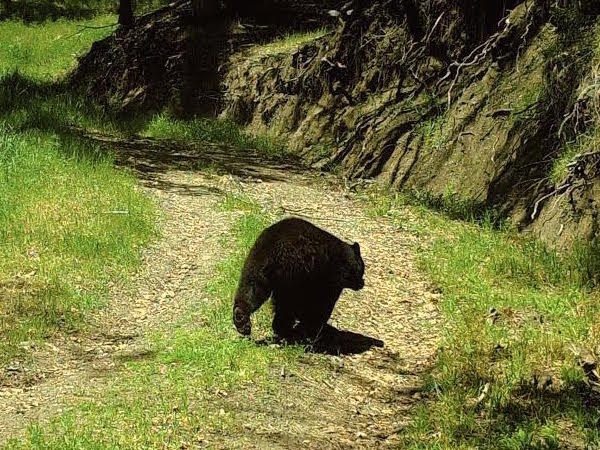Recent black bear sightings around Sonoma Valley remind us of things we can do to live peacefully with this keystone species.
The past couple weeks have come with numerous black bear sightings in Sonoma Valley, from Cavedale Road to the Keen Property to Jack London State Historic Park. This is fantastic news! But it can also turn to bad news if we do not practice proper bear etiquette with our new neighbors.
Around this time of year, juvenile black bears tend to strike out on their own, searching for their own home range to root, hunt and live in. We celebrate the return of this intelligent, powerful and beautiful keystone species—however, the good news can come with a potential downside.
If a wandering bear comes into contact with human garbage, it can alter its behavior for the worse, leading to unsafe interactions and, ultimately, in the bear being removed or killed. This has already happened in Sonoma County over the years.
As Sonoma Ecology Center Senior Project Manager Caitlin Cornwall told the Sonoma Index-Tribune, “If a bear gets used to looking for food around people’s homes, it can be frightening for people and a death sentence for the bear.”
But that can be avoided by not letting bears become habituated to our food and our garbage in the first place. Rural Sonoma Valley residents in particular can help these dispersing bears, and us humans, by following two simple steps:
1) Do not leave potential food sources out where bears can reach them. That includes trash, pet food, bird feeders, beehives, barbeques, compost or anything else a bear might eat. Put garbage cans out in the morning of pickup, not the night before.
2) Use noise to deter bears when they approach your house or property. Pots and pans, whistles, car horns, air horns and yelling can do the trick. Make sure this is done from a safe position, such as inside the house or on an upper deck.
For more on local bears and bear etiquette, check out the North Bay Bear Collaborative at www.beingwithbears.org. This group of local partners including Sonoma Ecology Center is working to keep our bears wild, our residents and property safe, and our environment natural.

